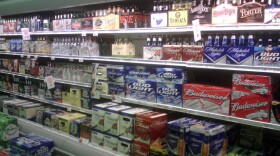In the past decade, a few big beer companies went on a buying spree, spending some to buy up brewers around the world, according to Bloomberg.
Beer drinkers can be excused for not noticing. Unlike, say, airlines, which fold their acquisitions into one big, global brand, big beer companies tend to keep the brands they buy in the market.
As a result, the two biggest beer companies on the planet — Anheuser-Busch InBev and SABMiller — now own more than 200 brands based in 42 countries (including 18 in the U.S. alone). We've put together this handy guide so you can know whose beer you're really drinking.
The story of Anheuser-Busch InBev's rise to global dominance is all about consolidation. Inbev was born out of a merger of Belgian brewer, Interbrew, and Latin American brewer, Companhia de Bebidas das Américas aka AmBev, . That same year, Anheuser-Busch grew by acquiring one of China's biggest brewers, . The company we know today came about when InBev bought the American/Chinese powerhouse, Anheuser-Busch, for $52 billion dollars in 2008.
SAB Miller, the number two global brewer, got its name in 2002 after South African Breweries bought Miller. Just a couple years later, the firm grew by buying up the second largest brewer in South America, . Two years later, they launched a joint venture in the U.S. with MolsonCoors* to create . In 2011, they bought Australia's biggest brewer, Foster's, and took a big stake in Russia's second biggest brewer, Efes.
These days, the beer market is increasingly about the world outside the United States. The fastest growing beer market in the world right now is , and several South American markets are growing rapidly as well. That's why brewing giants like ABI are trying to snap up brewing operations all over the globe. Just last April, ABI paid for a big stake in Cerveceria Nacional Dominicana, the Dominancan Republic national brewer, which brews Presidente beer.
That's why Anheuser-Busch InBev (ABI), the world's largest brewer, wants to buy the world's seventh largest brewer, the Mexican brewer, Grupo Modelo.
The would give ABI control of 46 percent of the U.S. beer market (it has 39 percent of the U.S. beer market and Grupo Modelo has 7 percent). That alarmed the Department of Justice's antitrust division so much they to stop the merger.
But ABI really wants to make this deal happen. The company even agreed to sell off the right to sell Corona in the U.S. The is an attempt to appease U.S. regulators, but it hints at something larger — ABI's interest in the market outside the U.S.
"The AB InBev and Grupo Modelo transaction has always been about Mexico and making Corona more global in all markets other than the U.S.," the company said in a recent .
*Clarification: The MillerCoors joint venture applies to the U.S. MolsonCoors still has sole ownership of Blue Moon and Coors Light outside the U.S.*
Copyright 2023 NPR. To see more, visit https://www.npr.org.




